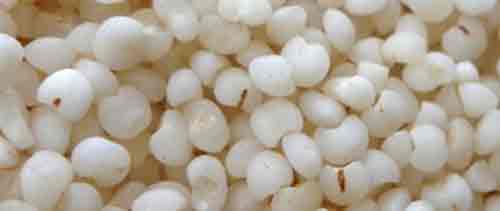Kodo Millet is Varagu in Tamil, Koden in Hindi, Kodra in Sanskrit, Arikelu in Telugu, Koovaragu in Malayalam, Harka in Kannada. Kodo Millet is a little big grain among Millets and it contains 7-8 layers of husk and bran. Everyone can use it as a great choice for ordinary white rice, including kids, seniors, diabetics, obese people, and others.

Dietary fibre, iron, zinc, calcium, protein, magnesium, lipids, vitamins, and several necessary amino acids are all abundant in Varagu/Kodo Millet. It is also a gluten-free grain, making it acceptable for anyone with gluten sensitivity.

In markets varagu / Kodo Millet is available as polished Kodo Millet, Semi Polished Varagu and Unpolished Varagu. We can easily identify varagu with other millets as it is a little bold and slightly bigger in size than the other millets. Polished Kodo Millet will be white in color, unpolished will be brownish red in color whereas semi polished is dark brownish yellow in color. We can also find boiled Kodo millet in some places and we can use any one of them for various dishes.
For idli dosa we can use boiled kodo millet / varagu, for pongal polished kodo millet, for variety rice we can use semi polished and unpolished for plain millet lunch.
Kodo Millet Health Benefits
- Good for Diabetes
- Rich in Magnesium
- Heals wounds effectively
- Rich in Fiber
- Good Source of Antioxidants
- Reduces Migraine
- Helps in Weight loss
- Good source of Protein
- Helps reduce Cancer risk

- Prevents Constipation
- Good for High Blood Pressure
- Strengthens Nervous System
- Helps prevent Celiac disease
- Good for postmenopausal women
- Lowers Cholesterol
- Reduce risk of Colon Cancer
- Good for Metabolic disease
- Controls Blood Sugar Level

Kodo Millet Nutrition
- Protein: 8.03 grams
- Fat: 1.4 grams
- Carbohydrate: 64.9 grams
- Calcium: 27 mg
- Thiamine: 0.33 mg
- Niacin: 0.2 mg
- Iron: 2.9 mg
- Riboflavin: 0.1 mg
- Calories: 352 kcal
- Dietary Fiber: 9.0 grams

